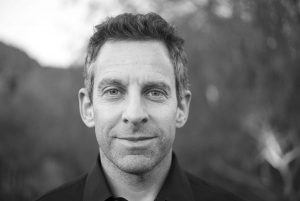Jamil Jivani in Quillette:
 The demand that we transcend tribalism in public debate sits on the schism line of today’s culture wars over speech, scholarship and art. On one side (loosely, if inexactly, called “the left”), there exists a deep conviction that the social justice sins of the past (and present) make an escape from tribalism impossible—and so the only solution is to carve out well-guarded silos of speech and cultural representation for disadvantaged groups. On the other side (loosely, if inexactly, called “the right”) are those who view those silos as a tool of censorship, as well as an affront to the idea that we all can speak for ourselves as individuals, regardless of skin color, sexual orientation, gender and faith.
The demand that we transcend tribalism in public debate sits on the schism line of today’s culture wars over speech, scholarship and art. On one side (loosely, if inexactly, called “the left”), there exists a deep conviction that the social justice sins of the past (and present) make an escape from tribalism impossible—and so the only solution is to carve out well-guarded silos of speech and cultural representation for disadvantaged groups. On the other side (loosely, if inexactly, called “the right”) are those who view those silos as a tool of censorship, as well as an affront to the idea that we all can speak for ourselves as individuals, regardless of skin color, sexual orientation, gender and faith.
This conflict took center stage during a recent high-profile Munk Debate in Toronto, which had been billed as a debate about the dangers of political correctness. Two of the biggest reactions from the 3,000-strong audience came in response to Georgetown University’s Michael Eric Dyson (representing “the left”) referring to psychologist Jordan Peterson as a “mean, mad white man,” and then Peterson subsequent pointing to Dyson’s comment as an “example of what’s wrong with the politically correct left.” A primary source of conflict between the two best-selling authors was the extent of white privilege, and the question of how it should be accounted for in public debate, if at all.
On that Munk Debate stage in Toronto, Peterson wanted to have a debate among individuals sharing ideas as individuals, not as representatives of their race. Dyson disagreed again and again. The other participants—journalist Michelle Goldberg and performer Stephen Fry—watched on as this increasingly toxic exchange dominated the night.
More here.
